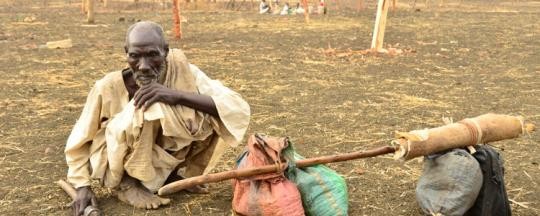The Koma Ganza community in southern Blue Nile State is suffering from severe hunger amid worsening market and agriculture conditions in the area, according to humanitarian monitors.
According to the South Kordofan Blue Nile Coordination Unit (SKBN CU), a humanitarian monitoring network, the situation of the Koma Ganza population from the southern edge of Blue Nile state, on the right side of the Yabus river, is “particularly alarming.”
Citing reports from local sheikhs, the Coordination Unit reported 17 cases of death due to malnutrition in the last week of June from Eshkap village (4 elders over 65 years, 3 of whom were women, and 3 children under 5 years) and Dogobeli village (5 elders and 5 children between 2-6 years).
“According to local people, deaths were caused by hunger, but also diarrhoea caused by eating wild roots and leafs of trees, which remains the only food in the area,” reads a report by SKBN CU.
Local humanitarian organization FYDA registered 70 more cases of people suffering severe hunger and in need of immediate help.
In related news, more than 2,000 people have moved temporarily into Yabus payam including Blue Nile refugees who were living in South Sudan and Ethiopia. They are searching for livelihood opportunities in the gold mines and at farms.
“Koma Ganza people were also seen in the area of Yabus looking for casual work in farms, cutting bamboos, timber and dry grass,” the Coordination Unit reported.
The planting rains in southern Blue Nile came early and were widespread but they have been significantly interrupted, affecting crops planted in Yabus area and Chali Alfil last month, mainly sorghum and simsim. Some seedlings have dried up and/or have been eaten by insects.
Maize planted in the areas along the Yabus and Juboraka rivers are better off as crops could be irrigated manually, the monitors reported. The anticipated crop production is nonetheless insufficient to provide food for the whole population.
In the three markets available in the SPLM-N held areas, prices of essential commodities (sorghum, oil, onion, sugar, coffee, salt) have reportedly rapidly increased since May 2015, mainly due to unfavourable currency exchange rates caused by lack of Ethiopian Birr.
Since May, the exchange rate has moved to about 35% higher between the South Sudan pound and the Birr, which is the main currency for the markets.
File photo/Tomo Kriznar




